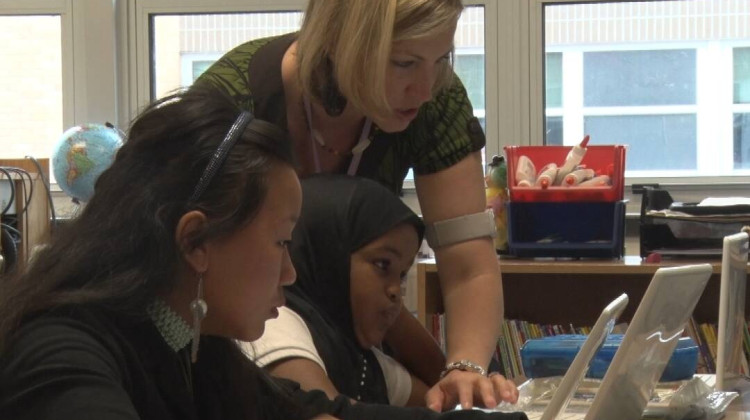
Officials from the group The Arc of Indiana said students with disabilities will have less flexibility under the state's new high school diploma proposal.
Linda Hosek / U.S. Department of DefenseResidents across Indiana have raised concerns about the Indiana Department of Education’s proposal for new high school graduation requirements. The Arc of Indiana, a group that helps Hoosiers with developmental disabilities, said many of the new requirements are limiting to students who have disabilities.
Some students could graduate with Indiana’s Alternate Diploma, but there is a cap on the number of students who can graduate with that diploma each year, and students must have severe cognitive disabilities to qualify.
Karley Sciortino-Poulter is The Arc’s advocacy network director. She said students who have disabilities have greater opportunities with a high school diploma.
One of The Arc’s top concerns is that the enlistment pathway, one of three pathways detailed in the proposal, is inaccessible to students who have disabilities.
“The U.S. military literally has hundreds of health conditions that, even if an individual wants to serve, they are physically not able to serve,” Sciortino-Poulter said.
She added that disabilities like asthma and ADHD can prevent people from joining the Armed Forces and not every student who has a disability wants or is able to go to college.
READ MORE: 'This proposal fails all our students': First public comment period ends for new diplomas
Join the conversation and sign up for the Indiana Two-Way. Text "Indiana" to 765-275-1120. Your comments and questions in response to our weekly text help us find the answers you need on statewide issues.
There could also be challenges with the availability and the requirements for work-based learning opportunities.
Sciortino-Poulter said people with disabilities often make great employees when they have the right support and accommodations in place.
“We need to add some more flexibilities to be able to make it more personalized, to meet the needs of those students, but then we also need to make it more flexible so there can be exceptions,” she said.
Sciortino-Poulter said the diploma requirements need greater flexibility to ensure all students have the opportunity to succeed.
“These are not one-size-fits-all situations, and we have to be able to have some general parameters, but still make sure that we are able to adjust as needed,” Sciortino-Poulter said.
Kirsten is Indiana Public Broadcasting's education reporter. Contact her at kadair@wfyi.org or follow her on Twitter at @kirsten_adair.
 DONATE
DONATE







 Support WFYI. We can't do it without you.
Support WFYI. We can't do it without you.